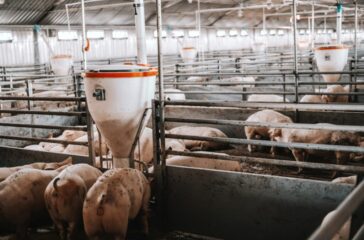EPA battles environmentalists in court over regulation of CAFOs and water pollution
By Keith Schneider
A coalition of environmental organizations faced off against the Environmental Protection Agency (EPA) in federal appellate court on Thursday in the latest skirmish in a long-running battle over the agency’s regulatory approach to water contamination connected to industrial agricultural operations.
The groups, led by the nonprofit Food & Water Watch, told a three-judge panel of the 9th US Circuit Court of Appeals that the EPA must strengthen its oversight of what are known as concentrated animal feeding operations (CAFOs).
The agency is unlawfully allowing roughly half of the nation’s more than 20,000 big livestock and poultry feeding facilities around the country to operate without permits required under the 1972 Clean Water Act, the groups argued to the court. And, they said, the agency is violating the law by authorizing CAFOs to store and spread manure so haphazardly that the drinking water for millions of people is at risk as thousands of streams, lakes and other waterways are polluted with harmful bacteria, nitrates, phosphorus and other contaminants.
The agency has “failed” for more than a decade to adequately regulate these operations, Food & Water Watch lawyer Emily Miller told the court.
The hearing Thursday stems from a petition filed by Food & Water Watch and other groups in 2017 that called for the EPA to require CAFOs to obtain water quality permits and strengthen permit standards to protect waterways from the manure generated by the animal operations. The petition also urged the agency to reconsider an exemption that immunizes CAFOs from any water pollution caused by storms washing manure off of saturated fields.
The Trump administration ignored the petition. Last summer, the EPA formally denied the petition, but announced it would form a committee to recommend any changes in how the agency regulated CAFOs. Food & Water Watch, joined by four other national organizations and eight environmental groups from five states, then sued the EPA, demanding it reconsider its decision.
In the court hearing, EPA attorney Paul Cirino told the judges that the agency had initiated a detailed study of CAFO operations and pollution in January and established a study group last summer that is scheduled to issue recommendations on CAFO oversight next year. The new information, he said, would guide the agency’s actions about how to respond to the environmental groups’ concerns.
But Miller pushed back. “EPA has already spent seven years when it could have been taking its statutory mandate seriously,” she said. “Now they want some undefined amount of time thinking rather than acting.”
A court ruling on the matter could take months.
 EWG
EWG